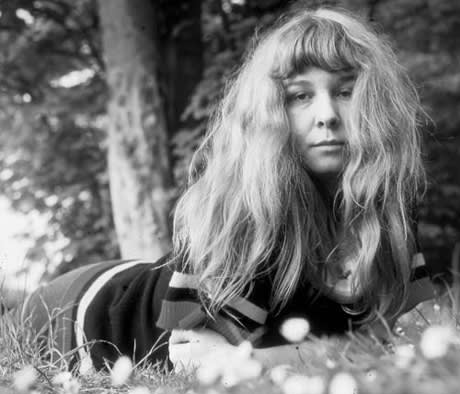One of the last songs Sandy Denny recorded prior to her death in 1978, at the age of 31, was her version of Elton John's "Candle in the Wind." It seems a cruel irony now, not just because the song was inspired by Marilyn Monroe's death, but because Denny's choice to cover such a well known pop hit was out of character. Yet, in her field, Sandy Denny was just as iconic as Monroe; she was the pre-eminent voice of modern British folk and as this massive 19-disc career retrospective argues convincingly, its defining figure. The package has it all, from her earliest hootenanny-style recordings and tentative attempts at Byrds-ish folk rock with the Strawbs to the seminal 1968/'69 albums with Fairport Convention and her eventual emergence as a well rounded solo singer-songwriter. What remains consistent throughout is the mystical instrument that was her voice. Denny's gift was evident from the beginning, as none of her contemporaries, including Joan Baez, Judy Collins or Joni Mitchell, could match her ability to inject soul into even the most ancient ballad. Songwriting was a different story, although one of the many fascinating aspects of the box set is following the evolution of Denny's best-known original composition, "Who Knows Where the Time Goes," over the course of a decade from its 1967 demo. Joining Fairport changed everything though, as she was suddenly teamed with a group of young musicians willing to take previously unimaginable musical risks. It's no surprise that 1969's Liege & Lief remains the standard by which all British folk rock is measured, due in large part to Denny's vision of electrifying traditional ballads. She carried that over into her next group, Fotheringay, formed with husband Trevor Lucas, although they couldn't completely replicate the Fairport magic. But as female artists like Mitchell, Carole King and Linda Ronstadt began to change the dynamic of rock in the early '70s, the timing was ideal for Denny to stake her claim. It took a few records for her to strike the right balance between traditional and contemporary material, even though many tracks, such as "Solo" and "Listen, Listen," displayed a more than capable pen. It's easy to conclude that had Denny not died young she would have slipped into middle-of-the-road obscurity in the '80s. But as it stands, Sandy Denny contains the body of work of an artist of the sort unlikely to be seen again for several generations.
(Universal/Island)Sandy Denny
Sandy Denny

BY Jason SchneiderPublished Nov 8, 2010